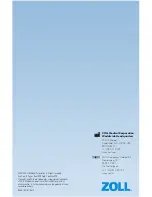
7
Clinical studies were conducted at multiple locations in the United States. Participants in the study were males diagnosed with
Androgenetic Alopecia, which includes hereditary hair loss, who had light to brown skin tones. Subjects were divided into two groups,
HairMax group and a control group. The control device looked and sounded like the HairMax device but did not include a laser light.
The Clinical studies adhered to all GCP (Good Clinical Practice) guidelines, were approved by an IRB (Institutional Review Board) and
listed on www.clinicaltrials.gov.
During the 6-month clinical study, subjects treated their hair once per day, 3 times
per week on non-consecutive days. The number of thick, normal healthy hairs in the
target zone were counted at week 1, week 16 and week 26.
Results at the 26 week visit showed that over 90% of the men saw an increase in hair
counts.*
No subjects in the study experienced any serious adverse events. In fact, the number
and types of adverse events were similar in the HairMax and control groups.
Hair Count Change
In the clinical study, after 26 weeks of treatment with the HairMax devices versus the
control device, the following increases in hair count were found.
*Based on a minimum of 5 new hairs per square centimeter/32 new hairs per square inch being observed at the follow up visit
SUMMAR
Y OF CLINICAL STUDY IN MEN
SUMMARY OF CLINICAL STUDY IN MEN
20.5
Hairs/cm2
132.2
Hairs/in2
2.7
Hairs/cm2
17.4
Hairs/in2
21.6
Hairs/cm2
139.3
Hairs/in2
4.3
Hairs/cm2
27.7
Hairs/in2
21.6
Hairs/cm2
139.3
Hairs/in2
4.3
Hairs/cm2
27.7
Hairs/in2










































